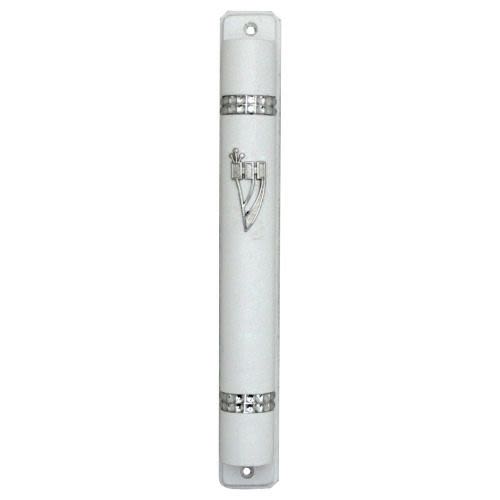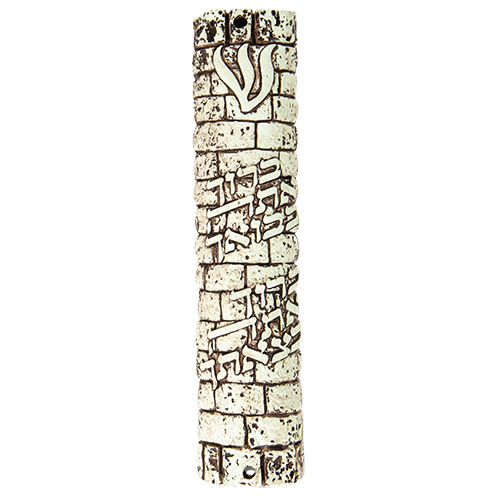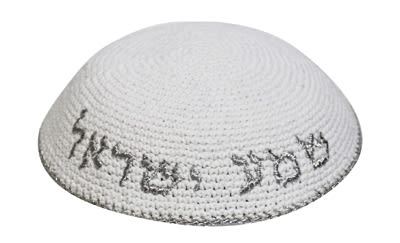
A Turn for a Turn
Hashem's policy of a turn for a turn is certainly not punishment; it's a Divine method of education...

The Causes of Suffering – continued
A Turn for a Turn
Hashem frequently employs the policy of a turn for a turn to teach a person why he or she is suffering. For example, a cab driver that violated Shabbat suffered two flat tires and a speeding ticket the following Sunday morning, causing him to lose the exact sum that he had earned by working on Shabbat. Another example: An employer that unjustly accused an employee of stealing was soon after accused by the tax authorities of cheating on his income tax.
Hashem’s policy of a turn for a turn is certainly not punishment; it’s a Divine method of education.
Our sages say, “A person is measured in the manner that he measures others. Shimshon (Samson) pursued the desire of his eyes and therefore lost his eyes at the hands of the Philistines[1]; Avshalom was haughty about his hair, and was therefore hung by the hair[2]; Miriam tarried an hour for Moshe (Moses), and therefore all of Israel tarried for her an entire week[3]” (Ibid. 8b).
Our Sages also teach (Tractate Shabbat 33a) that diphtheria – a terrible disease that begins with gram-positive bacteria in the intestines and culminates in a fatal growth that blocks the throat – is the result of slander. Just as a person’s negative “gut-feelings” against someone lead to slander and an evil tongue, diphtheria begins in the “guts” and progresses to the mouth.
Elsewhere (Tractate Berachot 5b), the Talmud tells the story of Rav Huna, whose four hundred casks of wine soured:
Rav Huna’s colleagues told him that he should do some soul searching, and contemplate why HaShem made his wine sour into vinegar. Rav Huna reacted, “What, am I suspicious of wrongdoing in your eyes?”His colleagues retorted, “What, is HaShem suspicious of punishing for no reason?”Rav Huna responded, “If anyone has heard that I’ve committed a wrongdoing, let him come forward and tell me!”His colleagues said, “We have heard that Your Honor isn’t fair with his tenant farmer, and fails to give him a just share of the grapevine cuttings.”Rav Huna protested, “My tenant steals me blind! I therefore leave the vine cuttings for myself.”The rabbis remarked, “The folk expression says that he who steals from a thief has the taste of thievery in his mouth…”Rav Huna conceded, “I take upon myself the obligation to atone and to return the tenant’s rightful portion of the grapevine cuttings.”
Although Rav Huna committed himself to teshuva, he had not yet rectified the injustice. HaShem, however, performed a miracle and restored the vinegar to its original state of wine. According to another opinion the price of wine vinegar skyrocketed and Rav Huna made a handsome profit. Either way, we see how a person’s acceptance of Divine justice reverses a situation from stern judgment to miraculous compassion.
Rav Huna transgressed with a grapevine cutting, and was subsequently punished by way of his wine. With such “turn for a turn” messages, Hashem helps us understand what we need to correct.
* * *
Rashi elaborates (Bereishit 37:2) how Divine justice demonstrated the policy of “a turn for a turn” in the episode of Yosef (Joseph).
Yosef slandered his brothers with three detrimental tales and was punished measure for measure, as follows:
1. Yosef said that his brothers ate the meat of a live animal; in turn, the brothers soaked Yosef’s cloak in the blood of a slaughtered kid goat.2. Yosef said that the sons of Leah were calling their half-brothers, the sons of Bilha and Zilpa, slaves; in turn, he was sold into slavery.3. Yosef said that his brothers were suspicious of illicit sex; in turn, he himself was accused of illicit relations with the wife Potifar.
Yaakov (Jacob) was away from home for 22 years; his absence caused his parents, Yitzchak (Isaac) and Rivka (Rebecca), tremendous anguish. Yaakov was punished measure for measure when his own beloved son Yosef was missing and thought dead for exactly 22 years!
Yehuda (Judah) fooled his father Yaakov by dipping his brother Yosef’s cloak in the blood of a kid goat and saying that Yosef had been devoured by a wild animal. Yehuda’s daughter-in-law Tamar fooled him with a kid goat (see Bereishit, Chapter 38).
Shimon advised his brothers to throw Yosef in a pit, and he himself was thrown in an incarceration pit in Egypt.
Yosef’s brothers caused him extreme anguish, and they in turn suffered extreme anguish in Egypt.
To be continued…
* * *
[1] See Judges, Chapter 16; Shimshon pursued the desire of his eyes and chose Delilah – an idol worshiper, the daughter of an enemy nation, and a person of treacherous character – and ultimately forfeited his eyes at the hands of her people.
[2] See Shmuel II, Chapter 18; Avshalom was vain about his hair, among other things. Avshalom also revolted against his father, Dovid Hamelech. While riding his mule, his hair became entangled in the branches of an oak tree; the mule kept on going, an Avshalom was left hanging by the scalp until death.
[3] See Shemot 2:4; Miriam hid by the Nile overseeing her baby brother Moshe, who was placed in a wicker basket and cast on the river, until Pharaoh’s daughter discovered him. Later, when Miriam contacted leprosy (see Bamidbar, Chapter 12), all of Israel waited seven days until she healed.












Tell us what you think!
Thank you for your comment!
It will be published after approval by the Editor.